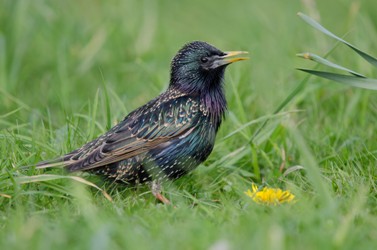It’s always been hard for native wildlife to find food in winter, and now they are also trying to adapt to a changing world too, expansion of urban environments and unreliable seasons due to climate change.
This winter we anticipate will be harder for some wildlife more than usual, due to the lack of acorns. Our native oak trees are a vital source of food for wildlife over winter; wild boar, deer, wood mice, and a number of birds; Jay are particularly reliant on acorns and as many of you know, our red squirrels hide them away in holes in the autumn to find later in winter.
Oak trees and one or two other trees species have an unusual strategy when it comes to producing their fruit. They have what’s known as a ‘mast’ year, this falls between 5 – 10 years. Mast is an old English term meaning nut of the forest. A Mast year is a year in which the oak produces a bumper crop of acorns. 2013 and 2020 were mast years for oak. Producing such an abundance of seed is expensive in terms of energy for the tree, so the subsequent 1-2 years it produces far less fruit. There’s a lot of debate about why trees adopt this strategy when it puts a strain on their resources. Thoughts are that’s it has an advantage, in managing wildlife that feed on the acorns. The theory is that if acorns were so reliable, surrounding wildlife learn to eat the whole crop each year; a major negative for the tree, whose purpose is to produce seeds to grow the next generation of oak trees. The mast year produces so much seed that wildlife can’t consume them all and the following years of scarcity mean the wildlife look elsewhere for food.
So, this year 2022 is a year of few acorns, after the 2020 mast. However, ecologists and conservationists flagged concerns in 2014 and this year about acorn shortage. In parts of Britain there are no acorns.
Acorn-oak fruits are produced as a result of wind pollination in spring. Spring 2021 was cold overall; we had a warm snap followed by cold and frosts combined with dry weather in April. These changes in spring weather cause significant difficulties for trees. When deciduous trees grow their leaves and break dormancy (term sap rises) they need lots of water.
On top of that, last year locally, there was a late hard frost which caused all the new leaves to die off and the trees had to grow new leaves – expending more energy, resulting in fewer flowers too and consequently fewer acorns. This combination of events has resulted an absence of acorns in many parts of the country. Climate change is changing weather patterns and has an impact on all species often in more than one way. Oak trees store large quantities of carbon which can help combat climate change, but Oak also support over 2300 different species, more than any other UK tree species and 326 of which are entirely dependent on oak. So, in a year of few acorns, we can help support our wildlife and make sure we have peanuts on offer for the birds; you could well be lucky enough to have the shy Jay visit your garden.
RSPB Big Garden Birdwatch
Join in during January – be part of the one million people in the UK who spend an hour watching the birds in their garden or local green space on either Friday 28th, Saturday 29th or Sunday 30th January 2022, and tell us what you see: RSPB Birdwatch information
Image credit: Tim Melling
